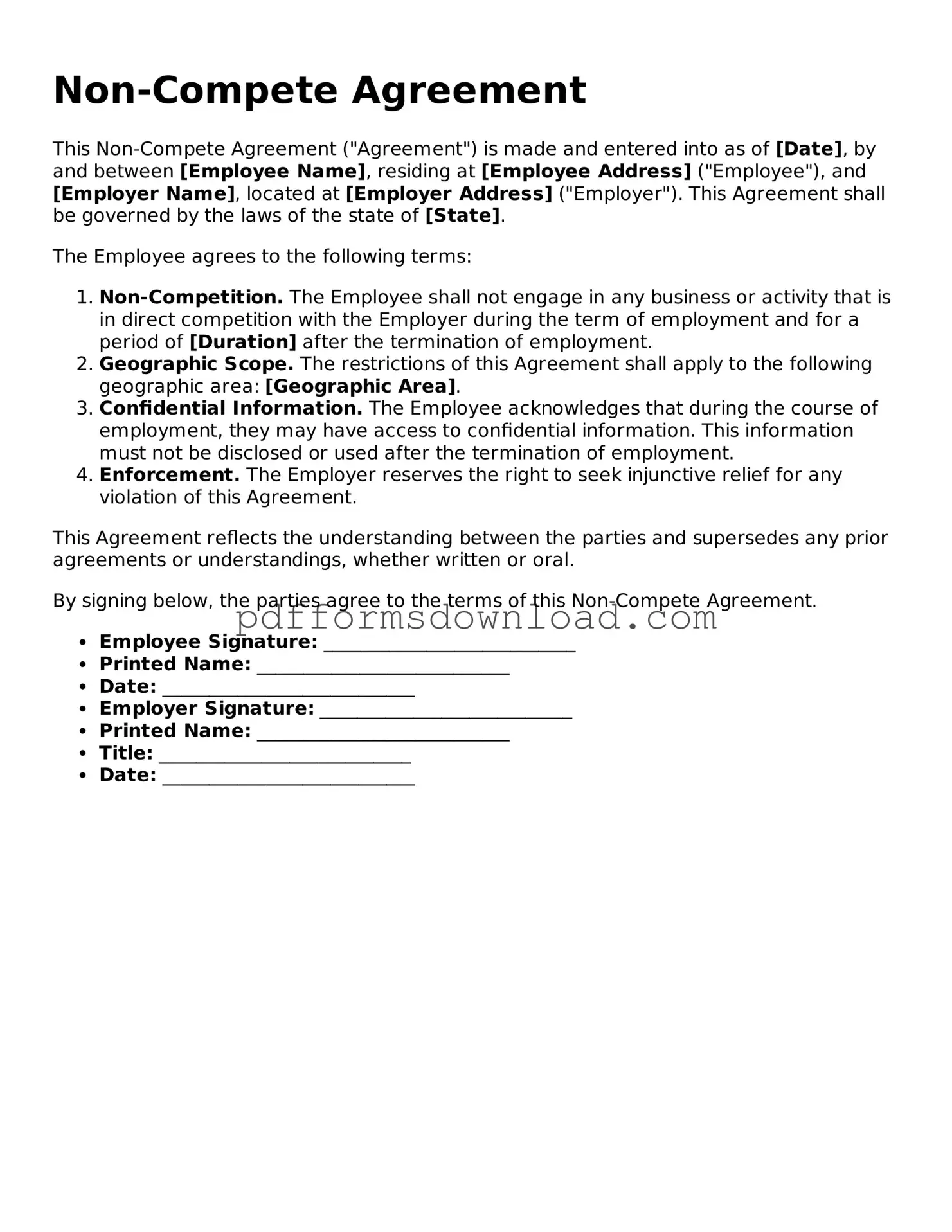Official Non-compete Agreement Document
A Non-compete Agreement is a legal contract that restricts an employee from engaging in business activities that compete with their employer for a specified period and within a defined geographical area after leaving the company. These agreements aim to protect the employer's confidential information and competitive advantage. Understanding the implications of this form is crucial for both employers and employees alike; take the first step by filling out the form below.
Make This Document Now

Official Non-compete Agreement Document
Make This Document Now

Make This Document Now
or
Free PDF File
Your form is almost ready
Complete your Non-compete Agreement online — edit, save, and download easily.